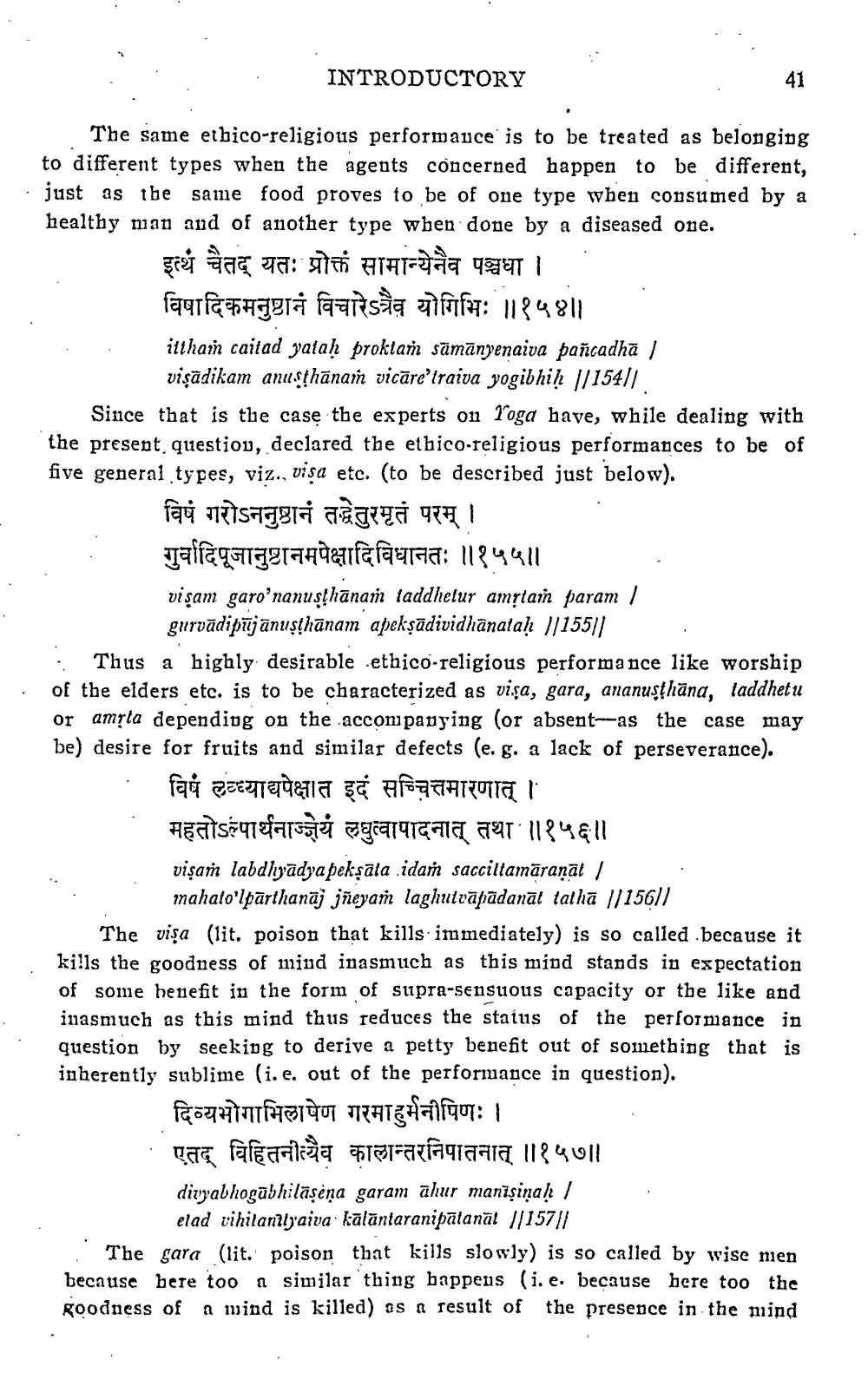________________
INTRODUCTORY
The same ethico-religious performance is to be treated as belonging to different types when the agents concerned happen to be different, just as the same food proves to be of one type when consumed by a healthy man and of another type when done by a diseased one. इत्थं चैतद् यतः प्रोक्तं सामान्येनैव पञ्चधा । विषादिकमनुष्ठानं विचारेऽत्रैव योगिभिः ॥ १५४ ॥
ittham caitad yataḥ proktam sämānyenaiva pañcadha | viṣādikam anusṭhānam vicāre'traiva yogibhiḥ ||154||
41
Since that is the case the experts on Yoga have, while dealing with the present question, declared the ethico-religious performances to be of five general types, viz., visa etc. (to be described just below).
विषं गरोऽननुष्ठानं तद्धेतुरमृतं परम् । गुर्वादिपूजानुष्ठानमपेक्षादिविधानतः ॥ १५५ ॥
viṣam garo'nanuṣṭhānaṁ taddhetur amṛtam param gurvādipūjānuṣṭhānam apekṣādividhānataḥ ||155||
Thus a highly desirable ethico-religious performance like worship of the elders etc. is to be characterized as visa, gara, ananuṣṭhāna, taddhetu or amṛta depending on the accompanying (or absent-as the case may be) desire for fruits and similar defects (e. g. a lack of perseverance).
विषं लब्ध्याद्यपेक्षात इदं सच्चित्तमारणात् । महतोऽल्पार्थनाज्ज्ञेयं लघुत्वापादनात् तथा ॥१५६॥
visam labdhyadya pekṣāta idaṁ saccittamāraṇāt | mahato'lṣārthanaj jñeyaṁ laghutvāpādanāt tathā ||156||
The visa (lit. poison that kills immediately) is so called because it kills the goodness of mind inasmuch as this mind stands in expectation of some benefit in the form of supra-sensuous capacity or the like and inasmuch as this mind thus reduces the status of the performance in question by seeking to derive a petty benefit out of something that is inherently sublime (i. e. out of the performance in question).
दिव्यभोगाभिलाषेण गरमाहुर्मनीषिणः ।
एतद् विहितनीत्यैव कालान्तरनिपातनात् ॥१५७॥
divyabhogabhilasena garam ahur manişinah / etad vihitantlyaiva kālāntaranipātanāt ||157||
The gara (lit. poison that kills slowly) is so called by wise men because here too a similar thing happens (i. e. because here too the goodness of a mind is killed) as a result of the presence in the mind




